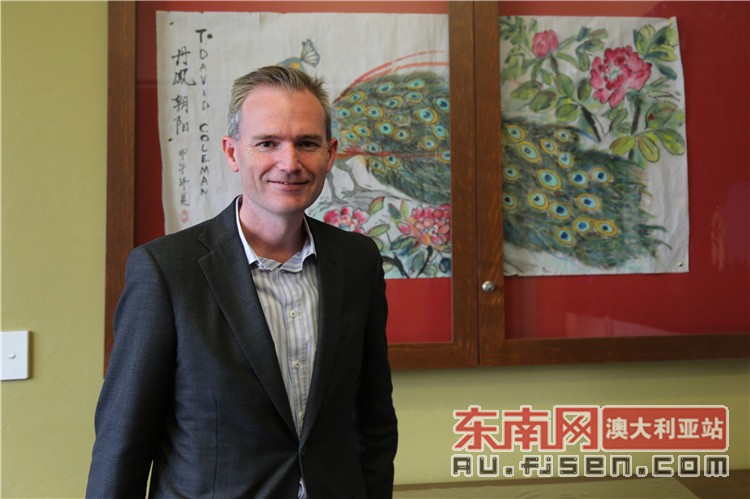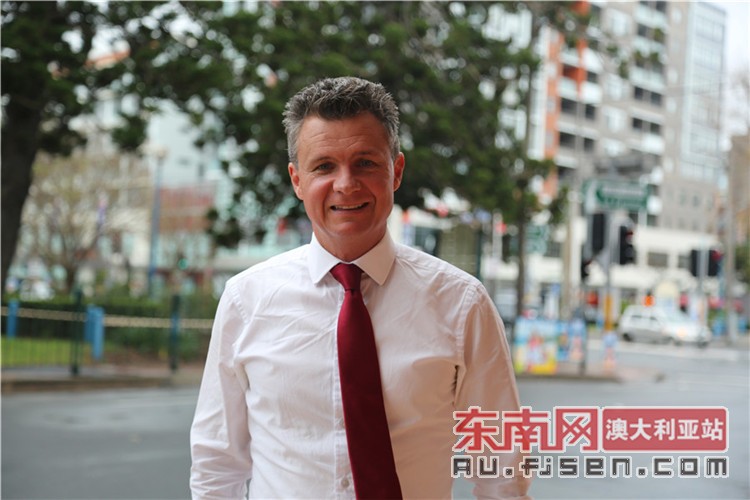東南網(wǎng)澳大利亞站7月21日訊 (本站記者 彭寒)剛剛在大選中取得連任的澳大利亞自由黨聯(lián)邦議員David Coleman(大衛(wèi)·高民)于今天在一家當(dāng)?shù)孛襟w發(fā)表署名文章,指出現(xiàn)行三年一選的澳大利亞聯(lián)邦選舉制度由于其過短的任期帶來了施政上的困難,尤其是在“復(fù)雜的結(jié)構(gòu)性調(diào)控”上。因此,任期應(yīng)延長至4年。

澳大利亞自由黨聯(lián)邦議員David Coleman(大衛(wèi)·高民)
同時,他也認(rèn)為2019年將會是就該提案舉行全民公投的最佳時機(jī)。
更完整的施政效果
如果我們今天起草一份聯(lián)邦選舉法案,我們絕不會說“讓我們每兩年半就選一次總理吧,我們也不用知道具體哪一天去投票,因?yàn)槟侨Q于時任總理是誰。”但事實(shí)上這就是我們現(xiàn)在的體制,我們應(yīng)該改變它,David Coleman寫道。
雖然澳大利亞絕大多數(shù)州政府的任期已經(jīng)是4年了,但是聯(lián)邦政府的任期依舊停留在三年。
“通常一屆聯(lián)邦政府,尤其是新政府,在三年中能夠與民眾互動的時間非常有限。”工黨聯(lián)邦議員Matt Thistlethwaite(馬特·悉蘇偉)在接受本站記者采訪時說道,“我個人認(rèn)為四年的任期能夠讓一些復(fù)雜的政策發(fā)揮出更好的效果”
早在1988,澳大利亞就針對是否將聯(lián)邦政府的任期由三年延長至四年舉行過公投,不過當(dāng)時只有32.9%的民眾支持該項(xiàng)提案,因此未能通過。
固定任期和選舉日
澳大利亞目前并沒有固定的選舉日期,加之總理在觸發(fā)一定條件的情況下可以解散國會兩院,提前大選,因此每到選舉年澳大利亞本地媒體的一大任務(wù)就是通過各種消息源對最終的大選日期作出預(yù)測。
每一次選舉日期的不確定性都會對經(jīng)濟(jì)投資信心以及社區(qū)造成影響,David Coleman寫道,如果我們能把聯(lián)邦政府的任期準(zhǔn)確固定為四年,并且有明確的選舉日期,那么我們會有更多的空間來計(jì)劃投資,做更多的事情。
剛剛結(jié)束的2016年澳大利亞聯(lián)邦大選是澳大利亞歷史上耗時最長的大選之一,從總理Malcolm Turnbull(馬爾科姆·特恩布爾)宣布解散兩院正式開始競選活動,到本周二他成功連任并宣誓就職,期間一共經(jīng)歷了九周有余的時間。而當(dāng)他于5月8日宣布解散兩院時,距離2013年9月自由黨領(lǐng)袖Tony Abbott(托尼·阿伯特)宣誓就職總理僅僅過去了2年又8個月的時間。
“一個確定的任期會帶來更穩(wěn)定的政局,這一點(diǎn)毫無疑問。現(xiàn)在的體制中不確定性太多了。” 工黨聯(lián)邦議員Matt Thistlethwaite(馬特·悉蘇偉)在這個問題上對來自不同政黨的David Coleman表示了支持。
澳大利亞需要穩(wěn)定
兩位來自不同政黨的聯(lián)邦議員在接受本站記者采訪時都不約而同地提到了穩(wěn)定這個詞語,誠然,政局穩(wěn)定對于澳大利亞人來講已經(jīng)是很久以前的事情了。
在過去的四年中,澳大利亞已經(jīng)先后經(jīng)歷了四位不同的總理,本次大選自由黨國家黨聯(lián)盟也是以及其微弱的優(yōu)勢才成功連任。
根據(jù)全國投票委員會所統(tǒng)計(jì)的數(shù)據(jù),兩大黨在本次大選中所得的首選票較之2013年大選均有明顯下降。
住在悉尼西區(qū),已經(jīng)年逾70的Benni在過去的兩次聯(lián)邦大選中都投了棄權(quán)票,“當(dāng)你的國家在過去四年中產(chǎn)生了四位總理,并且你天天看著政客們吵架并樂此不疲的時候,你很難在大選中真正投出那一票。”
?
Liberal MP Calls for Fixed Four-Years Term?
By Han, Southeast Net Australia, 21 July
David Coleman, the re-elected Liberal MP for Banks calls for four-year fixed term in federal parliament, insisting short term makes it difficult getting things down.
In an opinion piece published in Fairfax Media earlier today, Mr. Coleman addressed his concerns over the uncertainty brought by the short term and unfixed election date.
“If we were to devise a system today from scratch, we would not say: ‘let's have an election roughly every two-and-a-half years, at an unknown date, to be determined at the sole discretion of the Prime Minister of the day.’
“That's how our system currently works. We should change it.” Wrote David Coleman.
“The government obviously needs more time to get public consult,” Labor backbencher Matt Thistlethwaite also believes the three-year term in federal parliament is not enough for government to deliver a “better policy outcome”.

工黨聯(lián)邦議員Matt Thislethwaite(馬特·悉蘇偉)
Mr. Coleman also flagged his opposition to uncertainty of election date, including the ability of calling double dissolution, saying the election date uncertainty “reduce business investment and consumer confidence.”
The idea of four-year federal term was first introduced into referendum in 1988, where only 32.9% voters were in favor of it and therefore failed.
“A fixed four-year term would both reduce the amount of time spent in election periods, and completely eliminate the uncertain prelude that we see every two-and-a-half years or so. More business investment would occur, and governments would get more done.” Wrote Mr. Coleman.

